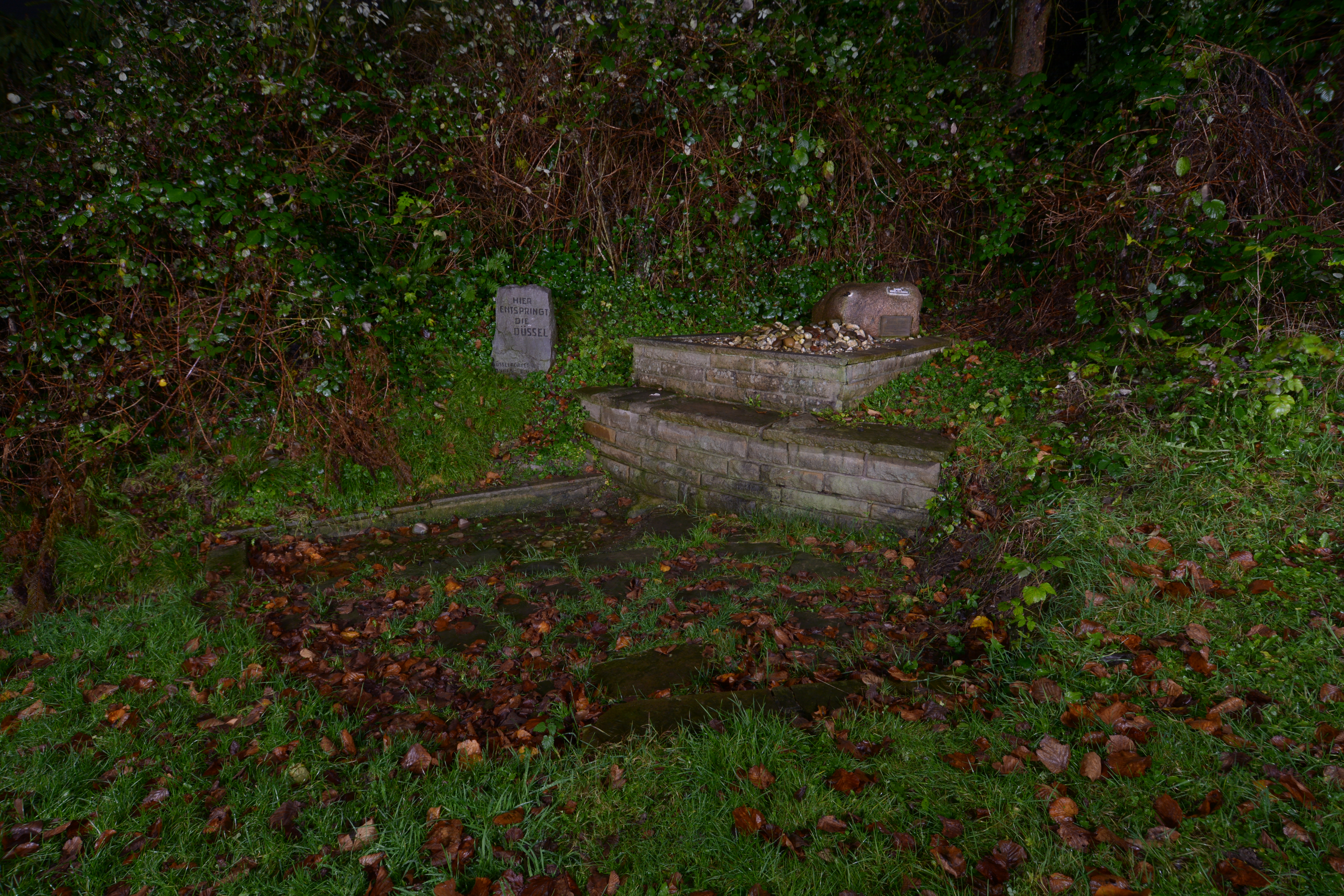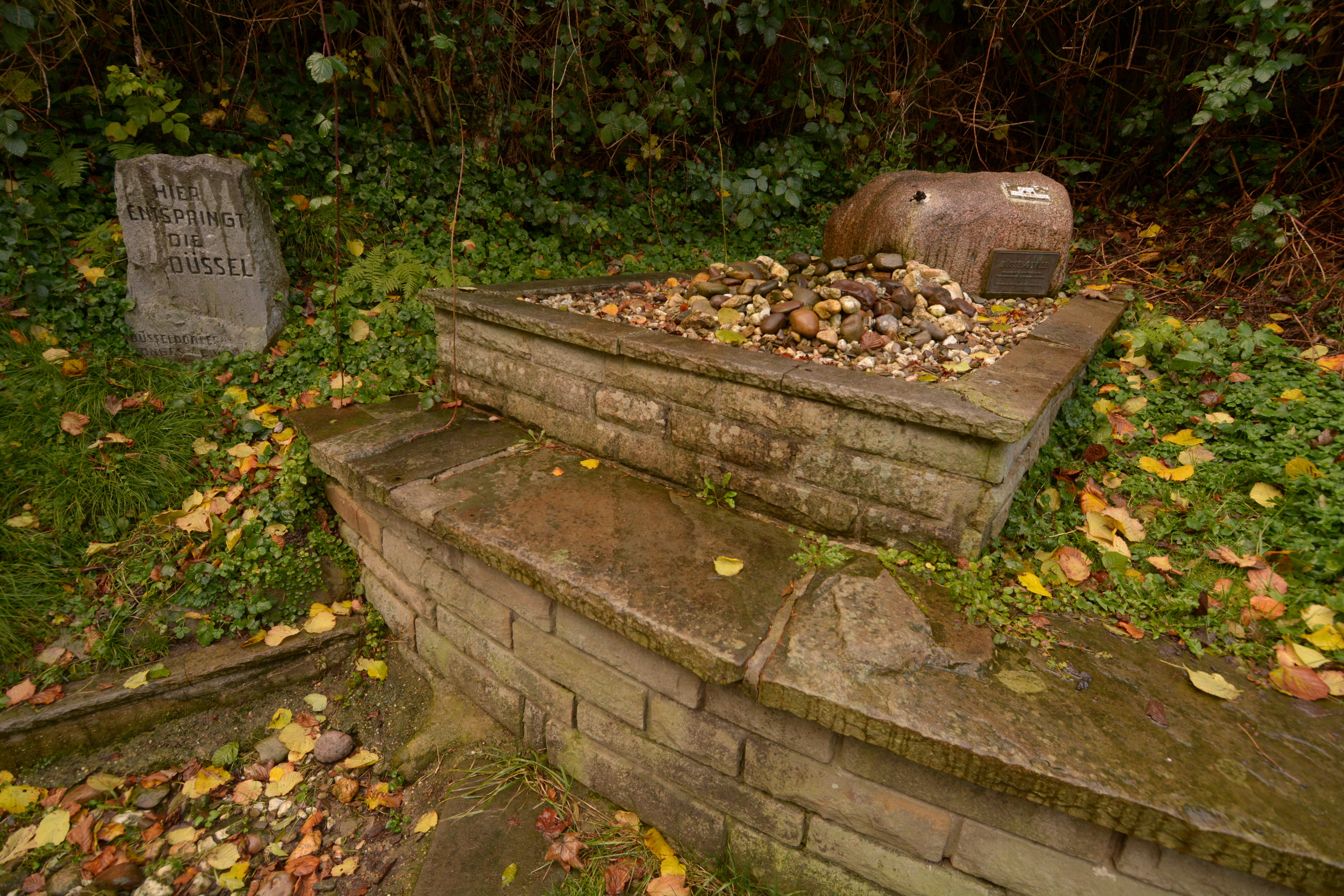Düssel on:
[Wikipedia]
[Google]
[Amazon]

 The Düssel is a small right
The Düssel is a small right

 The Düssel is a small right
The Düssel is a small right tributary
A tributary, or affluent, is a stream or river that flows into a larger stream or main stem (or parent) river or a lake. A tributary does not flow directly into a sea or ocean. Tributaries and the main stem river drain the surrounding drai ...
of the river Rhine
), Surselva, Graubünden, Switzerland
, source1_coordinates=
, source1_elevation =
, source2 = Rein Posteriur/Hinterrhein
, source2_location = Paradies Glacier, Graubünden, Switzerland
, source2_coordinates=
, source ...
in North Rhine Westphalia, Germany
Germany,, officially the Federal Republic of Germany, is a country in Central Europe. It is the second most populous country in Europe after Russia, and the most populous member state of the European Union. Germany is situated betwee ...
. Its source is east of Wülfrath
Wülfrath is a town in the district of Mettmann (district), in North Rhine-Westphalia, Germany.
Geography
The town is situated on the mountain spurs of the Bergische Land, between the Rhine, Ruhr and Wupper rivers. It is located in the central p ...
. It flows westward through the Neander Valley
The Neandertal (, also , ; sometimes called "the Neander Valley" in English) is a small valley of the river Düssel in the German state of North Rhine-Westphalia, located about east of Düsseldorf, the capital city of North Rhine-Westphalia. ...
where the fossil
A fossil (from Classical Latin , ) is any preserved remains, impression, or trace of any once-living thing from a past geological age. Examples include bones, shells, exoskeletons, stone imprints of animals or microbes, objects preserved ...
s of the first known to be Neanderthal man were found in August 1856. At Düsseldorf
Düsseldorf ( , , ; often in English sources; Low Franconian and Ripuarian: ''Düsseldörp'' ; archaic nl, Dusseldorp ) is the capital city of North Rhine-Westphalia, the most populous state of Germany. It is the second-largest city in ...
it forms a river delta
A river delta is a landform shaped like a triangle, created by deposition of sediment that is carried by a river and enters slower-moving or stagnant water. This occurs where a river enters an ocean, sea, estuary, lake, reservoir, or (more rare ...
by splitting into four streams (Nördliche Düssel, Südliche Düssel, Kittelbach, Brückerbach), which all join the Rhine after a few kilometres. The Nördliche Düssel flows through the Hofgarten and passes under the Golden Bridge.
Düsseldorf takes its name from the Düssel: ''Düsseldorf'' means "the village of Düssel". The name Düssel itself probably dates back to the Germanic *''thusila'' and means "roar" (Old High German
Old High German (OHG; german: Althochdeutsch (Ahd.)) is the earliest stage of the German language, conventionally covering the period from around 750 to 1050.
There is no standardised or supra-regional form of German at this period, and Old Hig ...
''doson'', German
German(s) may refer to:
* Germany (of or related to)
**Germania (historical use)
* Germans, citizens of Germany, people of German ancestry, or native speakers of the German language
** For citizens of Germany, see also German nationality law
**Ge ...
''tosen'').
See also
* List of rivers of North Rhine-WestphaliaReferences
Rivers of North Rhine-Westphalia Düsseldorf Rivers of Germany {{NorthRhineWestphalia-river-stub